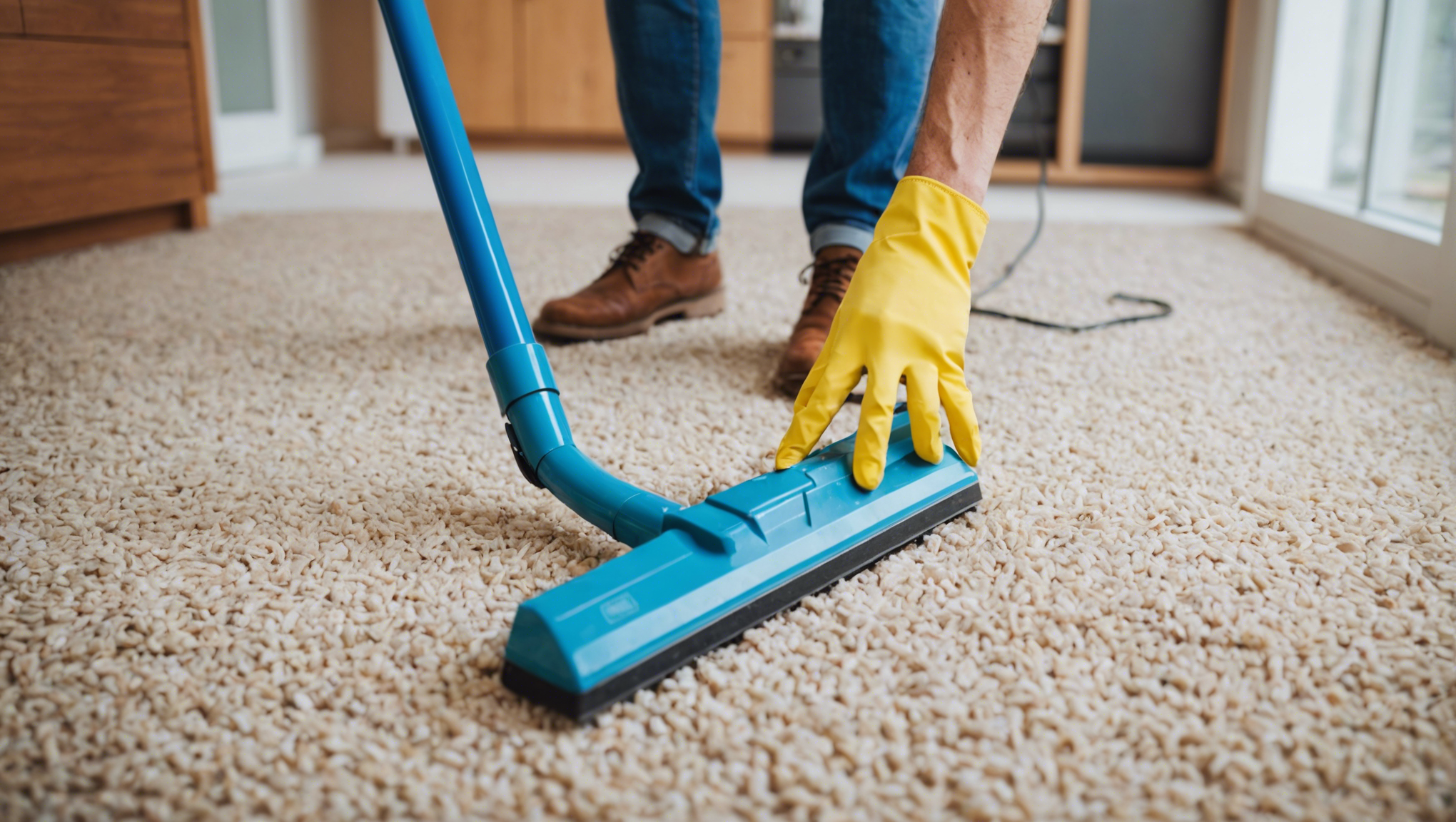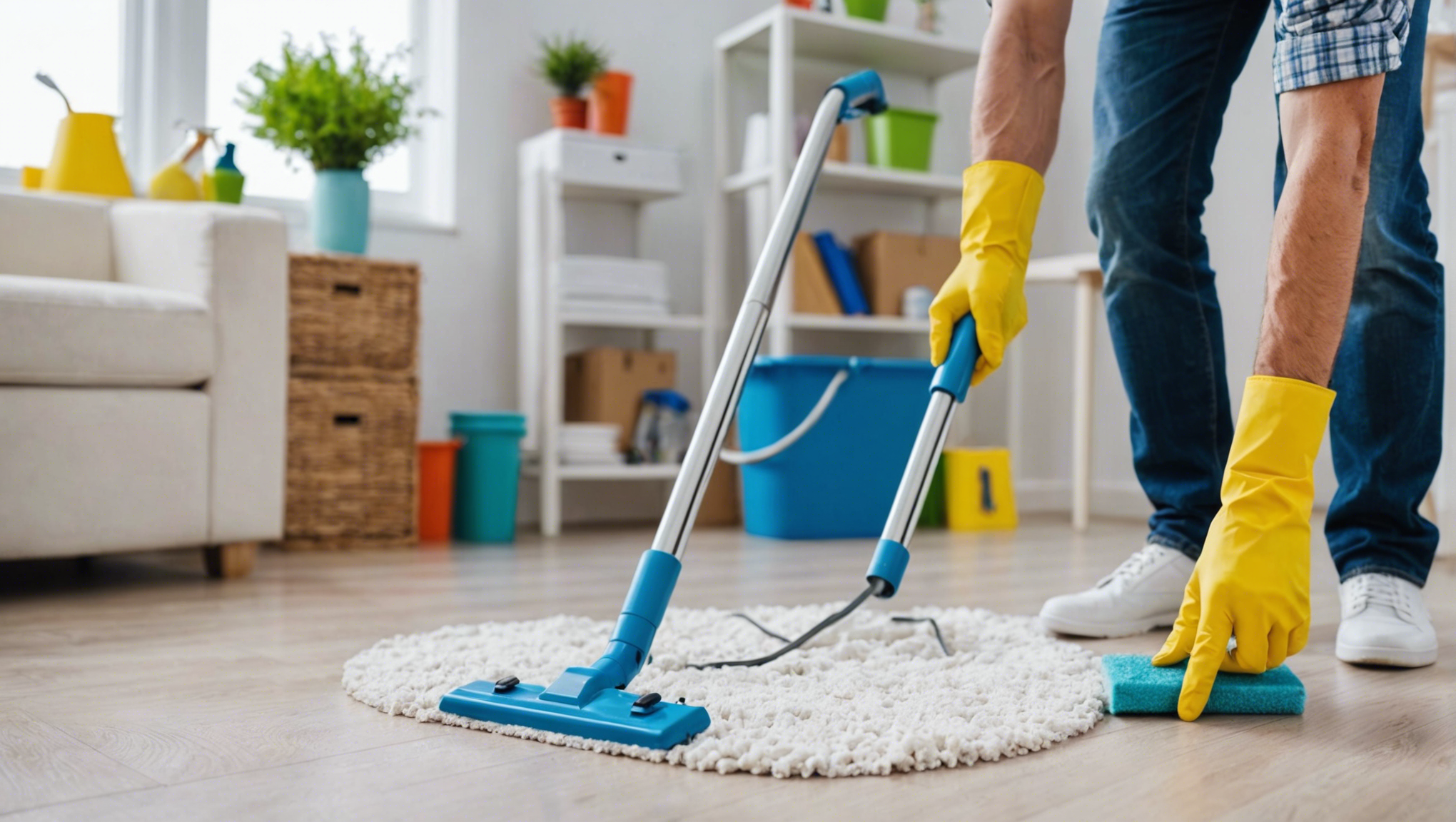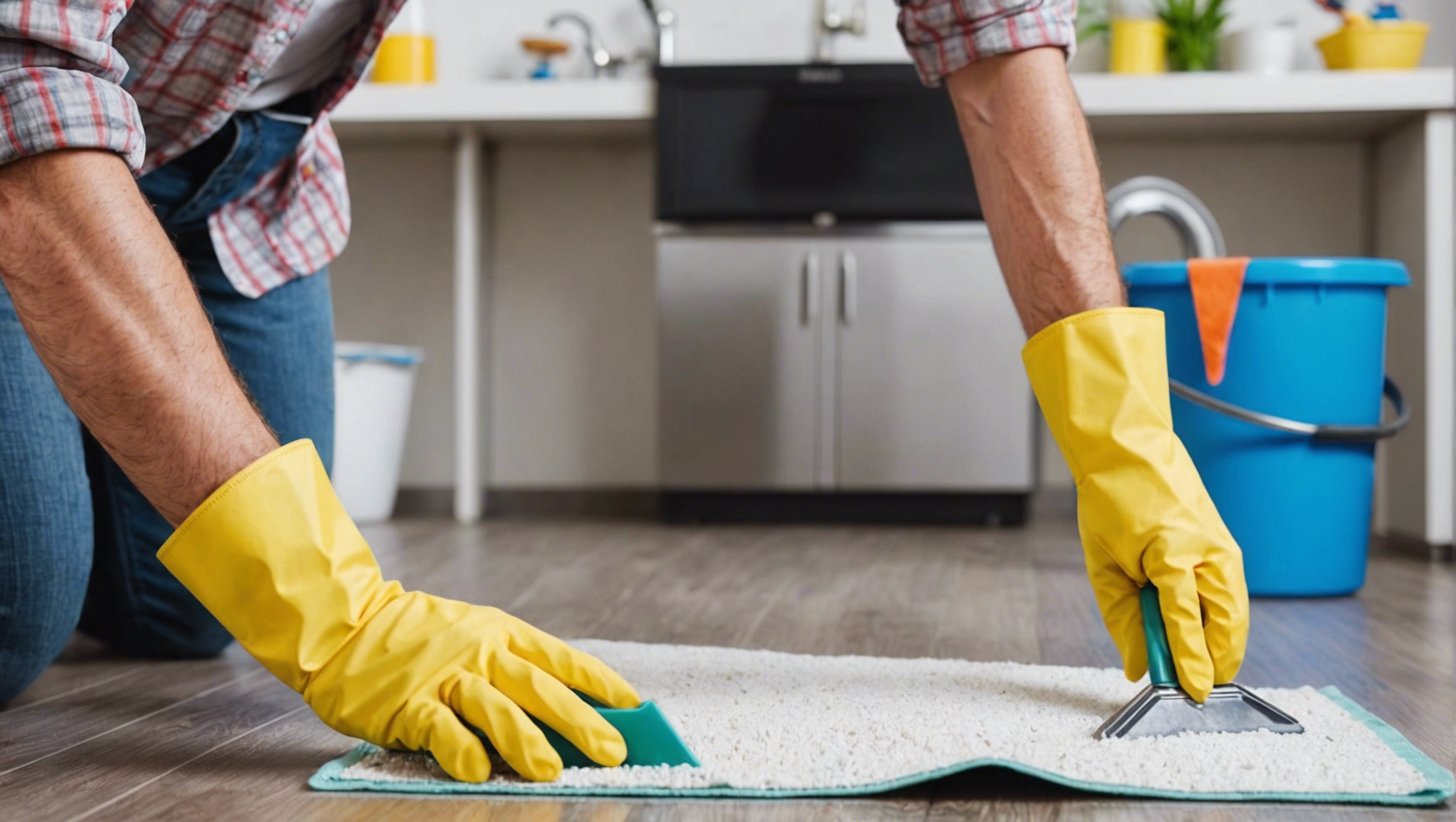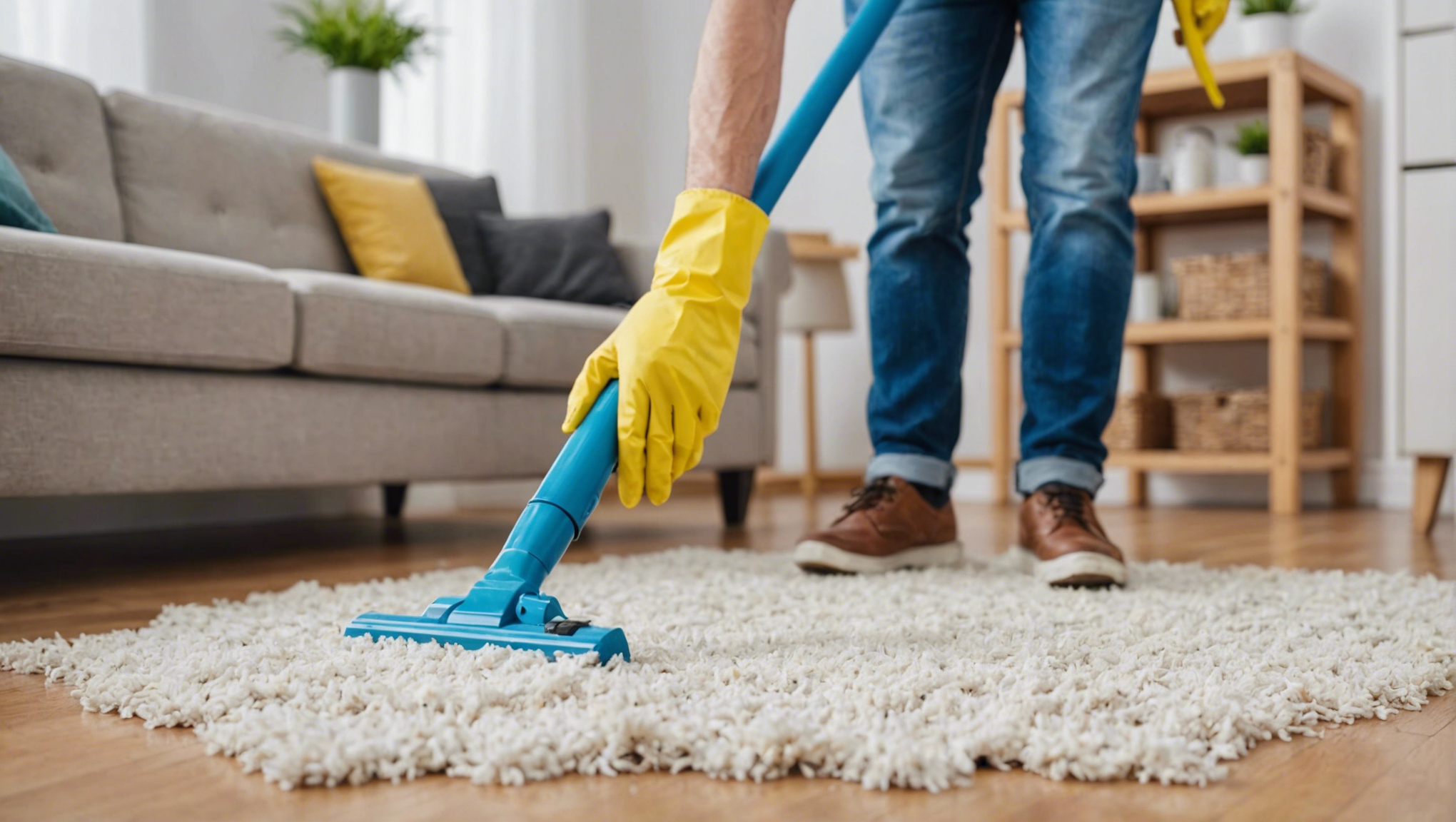“Learn the top 10 spring cleaning tips to keep pests away! From decluttering to sealing cracks, these easy steps will help you enjoy a pest-free home this season.”
Importance of Regular Spring Cleaning to Prevent Pests

The Significance of Regular Spring Cleaning to Prevent Pests
As an outdoor enthusiast who has been dealing with critters for decades, I understand the importance of maintaining a clean living environment to prevent pests from invading your home. Spring cleaning is not just about tidying up; it plays a crucial role in keeping unwanted visitors at bay.
Eliminating Potential Nesting Sites
Regular spring cleaning helps in eliminating clutter. Ensuring that your living space is tidy and organized reduces hiding spots and nesting sites for pests such as rodents and insects. Keeping areas like basements, attics, and garages clutter-free minimizes the chances of pests finding a cozy spot to settle in.
Removing Food Sources
One of the main attractions for pests is accessible food sources. Spring cleaning allows you to thoroughly inspect your pantry, cabinets, and other storage areas to discard expired items and properly seal food that pests could target. By removing their food source, you are less likely to attract unwanted guests into your home.
Preventing Moisture Build-Up
Damp and dark spaces provide the perfect breeding grounds for mold, mildew, and other pests. Regular spring cleaning involves checking for leaks, repairing any water damage, and ensuring proper ventilation in areas like bathrooms, kitchens, and basements. By reducing moisture levels, you are limiting the conditions that pests thrive in.
Inspecting Entry Points
Pests can enter your home through tiny cracks and crevices. As part of your spring cleaning routine, it is important to inspect the exterior of your home for any openings that pests could use to gain entry. Sealing these gaps and repairing damaged screens can act as a barrier against unwanted invaders.
In conclusion, regular spring cleaning is a vital step in pest prevention. By maintaining a clean and organized living space, eliminating food sources, controlling moisture levels, and securing entry points, you are proactively safeguarding your home from pest infestations. So, as the season changes, take the time to declutter, clean, and safeguard your home against potential pest intruders.
Top 10 Tips to Keep Your Home Pest-Free during Spring Cleaning

Inspect and Seal Entry Points
During your spring cleaning, make sure to inspect and seal any potential entry points for pests such as cracks in walls, gaps around windows and doors, and openings in the foundation. Properly sealing these entry points will help prevent pests from invading your home.
Keep Your Kitchen Clean
Pests are often attracted to food sources, so keeping your kitchen clean is essential in pest control. Store food in air-tight containers, clean up spills immediately, and regularly take out the trash to avoid attracting pests like ants and cockroaches.
Trim Vegetation and Clear Debris
Maintaining your yard by trimming vegetation and clearing away debris can help in pest control. Overgrown bushes and clutter around your home can provide hiding spots for pests, so keeping your yard tidy can deter them from making their way inside.
Regularly Empty and Clean Trash Bins
Trash bins can be a breeding ground for pests if not properly maintained. Make sure to regularly empty and clean your trash bins to prevent attracting pests like flies, rodents, and ants.
Fix Leaky Pipes and Damp Areas
Pests are often attracted to damp and moist areas, so fixing leaky pipes and addressing any areas of moisture in your home is crucial. Repair leaks promptly and use a dehumidifier in areas prone to dampness to discourage pests from setting up camp.
Use Pest-Resistant Storage Solutions
When storing items in your home, opt for pest-resistant storage solutions such as plastic containers with tight-fitting lids. Avoid storing items in cardboard boxes, as pests can easily chew through them.
Regularly Inspect and Clean Hidden Areas
During your spring cleaning, don’t forget to inspect and clean hidden areas of your home that are often overlooked. Check behind appliances, under sinks, and in closets for any signs of pests or their activity.
Schedule Regular Pest Control Services
To ensure your home stays pest-free, consider scheduling regular pest control services with a professional exterminator. They can provide preventative treatments to keep pests at bay and address any infestations that may arise.
Keep Outdoor Trash Bins Away from Your Home
To prevent pests from being drawn to your home, keep outdoor trash bins at a distance. Place them away from your home’s exterior and make sure they are sealed properly to avoid attracting unwanted visitors.
Invest in Outdoor Pest Control Methods
For additional protection, consider investing in outdoor pest control methods such as perimeter sprays or natural repellents to create a barrier around your home and deter pests from getting too close.
By following these Pest Control: Top 10 Tips to Keep Your Home Pest-Free During Spring Cleaning, you can enjoy a pest-free home and a more comfortable living environment.
Natural Ways to Deter Pests while Spring Cleaning

As the seasons change and spring cleaning tasks are underway, it’s essential to pay attention to pest control measures to keep unwanted critters at bay. Here are some natural ways to deter pests while sprucing up your home:
Seal Entry Points
One of the most effective ways to prevent pests from entering your home is to seal off any potential entry points. Cracks in walls, gaps around windows and doors, and openings in the foundation provide easy access for pests. Use caulking or weather stripping to seal these areas and keep pests out.
Maintain a Clean Environment
Pests are attracted to food sources and clutter. Keep your kitchen clean by storing food in airtight containers, promptly cleaning up spills, and regularly taking out the trash. Declutter your living spaces to eliminate hiding spots for pests.
Natural Repellents
Instead of using harsh chemicals, consider using natural repellents to deter pests. Peppermint oil, vinegar, and cedar chips are known to repel various pests such as ants, spiders, and moths. Place these repellents in strategic locations to keep pests away.
Maintain Outdoor Spaces
Pests often make their way into homes from outdoor spaces. Keep your yard tidy by trimming vegetation away from the house, removing standing water sources, and storing firewood away from the house. By maintaining your outdoor spaces, you can reduce the likelihood of pests finding their way inside.
Regular Inspections
Stay proactive by conducting regular inspections of your home for signs of pest activity. Look for droppings, gnaw marks, or nests, especially in areas such as attics, basements, and garages. Early detection can help prevent a full-blown infestation.
By incorporating these natural pest control methods into your spring cleaning routine, you can effectively deter pests and enjoy a pest-free home throughout the season.
Decluttering and Organizing Techniques to Discourage Pests
As an outdoor enthusiast who has been dealing with critters for decades, I have learned that one of the most effective ways to control pests is through decluttering and organizing techniques. By creating an environment that is less hospitable to pests, you can discourage infestations and keep your home pest-free. Here are some practical tips to help you in pest control:
Declutter Your Space
Decluttering is essential in pest control as it eliminates hiding places and nesting spots for pests. Remove unnecessary items and organize belongings neatly. Pay special attention to areas such as basements, attics, and storage rooms where clutter tends to accumulate. Regularly decluttering your space makes it less attractive to pests looking for shelter.
Seal Entry Points
Pests often enter homes through small cracks and openings. Inspect your home for any gaps in doors, windows, walls, and pipes. Use sealants or caulking to fill in these entry points and prevent pests from sneaking in. By sealing off these openings, you can effectively discourage pests from invading your home.
Proper Waste Management
Pests are attracted to food sources, so it is crucial to manage waste properly. Dispose of garbage regularly and store food in airtight containers. Keep your kitchen clean and free of crumbs or spills that can attract pests like ants, roaches, and rodents. By maintaining good hygiene practices, you can reduce the likelihood of pest infestations.
Maintain Outdoor Areas
The outdoor environment can also contribute to pest problems indoors. Keep yards and gardens well-maintained by trimming vegetation away from the house and removing standing water sources. Regularly inspect outdoor structures like sheds and fences for signs of pest activity. By limiting pests’ access to your home from the outside, you can prevent infestations from occurring.
Implement Preventive Measures
Aside from decluttering and organizing, there are several preventive measures you can take to discourage pests. Consider installing screens on windows and doors to keep insects out, using natural repellents like mint or citrus scents, and disposing of pet waste promptly. By being proactive in pest control, you can maintain a pest-free environment in your home.
By following these decluttering and organizing techniques, you can effectively discourage pests from invading your home. Remember that prevention is key in pest control, and maintaining a clean and organized living space is essential in keeping pests at bay.
Using Cleaning Products Safely to Repel Pesky Invaders
Understanding the Importance of Safe Pest Control
When dealing with pesky invaders in your home, it’s crucial to prioritize safe and effective pest control methods. Pest control using cleaning products is a popular choice for many homeowners who want to repel pests without using harsh chemicals that can be harmful to humans, pets, and the environment.
Choosing the Right Cleaning Products
Selecting the right cleaning products is essential to effectively repel pests while maintaining a safe environment. Look for natural and eco-friendly cleaners that are safe for indoor use. Products containing ingredients such as vinegar, baking soda, and essential oils can help deter pests without posing health risks.
Targeting Common Pest Entry Points
Identifying and sealing common pest entry points is a key part of pest control. Use cleaning products to thoroughly clean these areas and create barriers that deter pests from entering your home. Focus on areas around doors, windows, pipes, and cracks where pests are likely to infiltrate.
Creating a Cleaning Routine
Establishing a regular cleaning routine is essential for pest prevention. Make sure to clean up spills promptly, dispose of trash properly, and eliminate clutter that can attract pests. Use cleaning products to maintain a tidy and hygienic living space that is uninviting to pests.
Utilizing Pest-Repelling Scents
Natural scents such as lemon, peppermint, and eucalyptus can help repel pests while leaving your home smelling fresh. Incorporate essential oils into your cleaning routine to create a natural barrier that pests find unpleasant. This approach is both effective and safe for your household.
Seeking Professional Help When Needed
If your pest infestation persists despite your efforts, don’t hesitate to seek professional pest control services. Pest control experts can provide safe and targeted solutions to eliminate pests from your home without compromising your health or safety. Consult with professionals who prioritize environmentally friendly practices for effective and sustainable pest control.
By utilizing cleaning products safely and effectively, you can repel pesky invaders from your home while maintaining a healthy and eco-friendly living environment. Prioritize safe pest control practices to protect your loved ones and the planet.
Creating a Routine for Year-Round Pest Prevention after Spring Cleaning
As the weather warms up and we transition from winter to spring, it’s the perfect time to tackle cleaning tasks around the house. One crucial aspect of spring cleaning that often gets overlooked is pest prevention. By creating a routine for year-round pest control after your spring cleaning efforts, you can ensure that your home remains free of unwanted critters.
Inspect and Seal Entry Points
Pest control starts with prevention. After completing your spring cleaning, take the time to inspect your home for any potential entry points that pests could use to gain access. This includes checking for cracks in foundations, gaps around windows and doors, and openings in attics and basements. Seal off these entry points using caulk or weather stripping to keep pests out.
Eliminate Standing Water
Standing water is a prime breeding ground for pests like mosquitoes and flies. After spring cleaning, make sure to remove any sources of standing water around your property, such as clogged gutters, birdbaths, or potted plants that collect water. By eliminating standing water, you can reduce the risk of pests setting up camp near your home.
Maintain a Clean Environment
Clutter and food debris can attract pests into your home. After your spring cleaning efforts, make it a habit to regularly declutter and clean up any crumbs or spills. Store food in airtight containers and dispose of garbage in sealed bins to deter pests from lingering around your kitchen and living areas.
Implement Natural Pest Deterrents
If you’re looking for natural ways to keep pests at bay, consider using herbs like mint and lavender to repel insects. Essential oils such as lemon eucalyptus or citronella can also serve as effective natural repellents. Plant these around your home or use them in DIY sprays to ward off pests in a natural and eco-friendly manner.
Schedule Regular Pest Inspections
Even with the best preventive measures in place, pest infestations can still occur. To stay ahead of potential issues, schedule regular pest inspections with a professional exterminator. They can identify any early signs of pests and recommend treatments to address the issue before it escalates.
By incorporating these pest prevention tips into your routine after spring cleaning, you can maintain a pest-free environment throughout the year. Consistency is key when it comes to pest control, so make sure to stay vigilant and address any potential problem areas promptly. With a proactive approach to pest prevention, you can enjoy a comfortable and pest-free home all year long.
